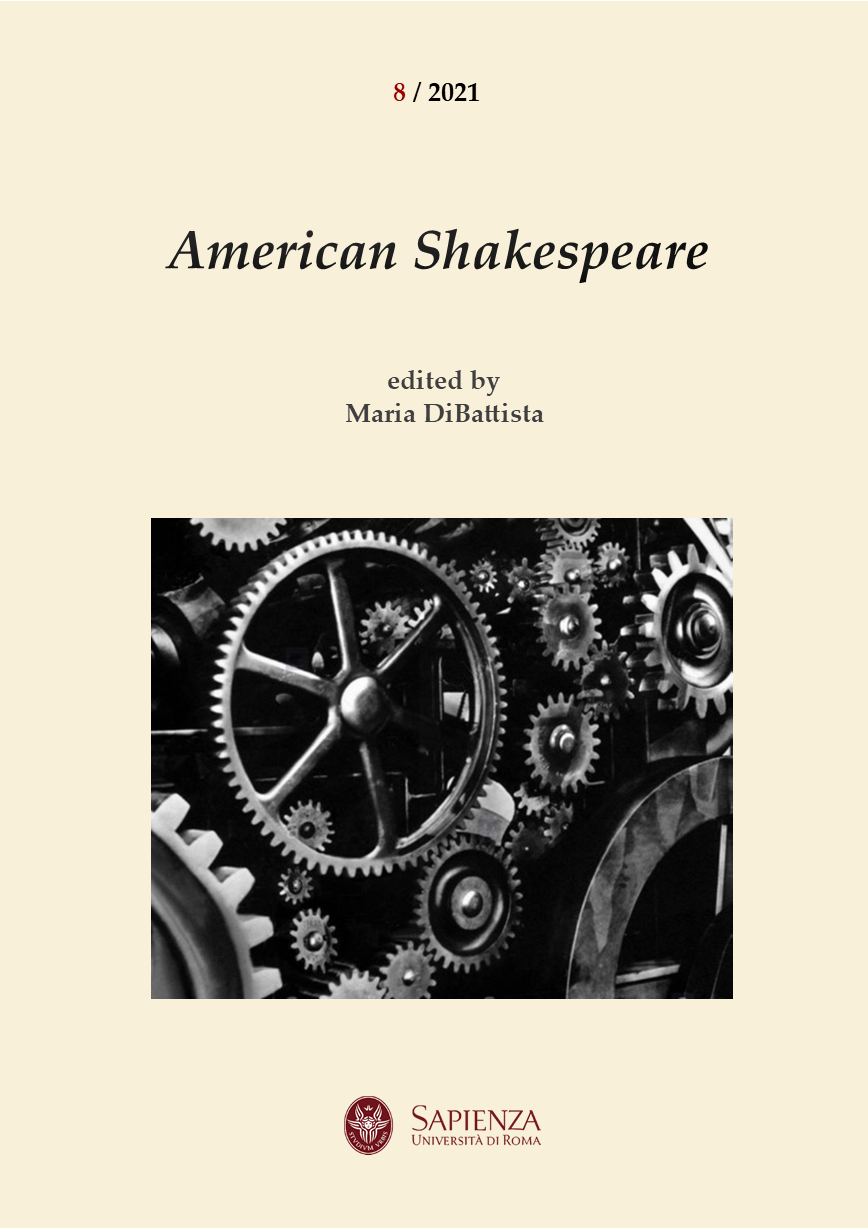“Hamlet Wavered for All of Us”: Notes on Emily Dickinson as a Reader of Shakespeare
DOI:
https://doi.org/10.13133/2283-8759/17612Parole chiave:
Emily Dickinson, Poems, Letters, Allusions to Shakespeare, Shakespeare in New EnglandAbstract
In New England, Shakespeare’s work was welcomed with alternating success. It was censored at first for several reasons: the Puritan law found his stories too sensuous and indecorous and his language was considered foreign to the New World. Even Emerson, despite his wide culture, objected to the fact that his contemporaries should consider Shakespeare immortal, claiming that he embodied a past that needed to be left behind.
If Shakespeare was frowned upon by the supercilious older generations, troubled by his moral and linguistic ambiguity, Emily Dickinson and her young contemporaries devotedly admired his work and read about it. The environment Emily Dickinson grew up in refined her taste vis à vis her readings and led her to an idea of drama as a possible and less intimidating double for real life. Drawing on hidden and more overt allusions, this essay explores the ways in which Shakespeare’s dramatic voice offered her the opportunity of interweaving fancy and daily life, imagination and real events.


